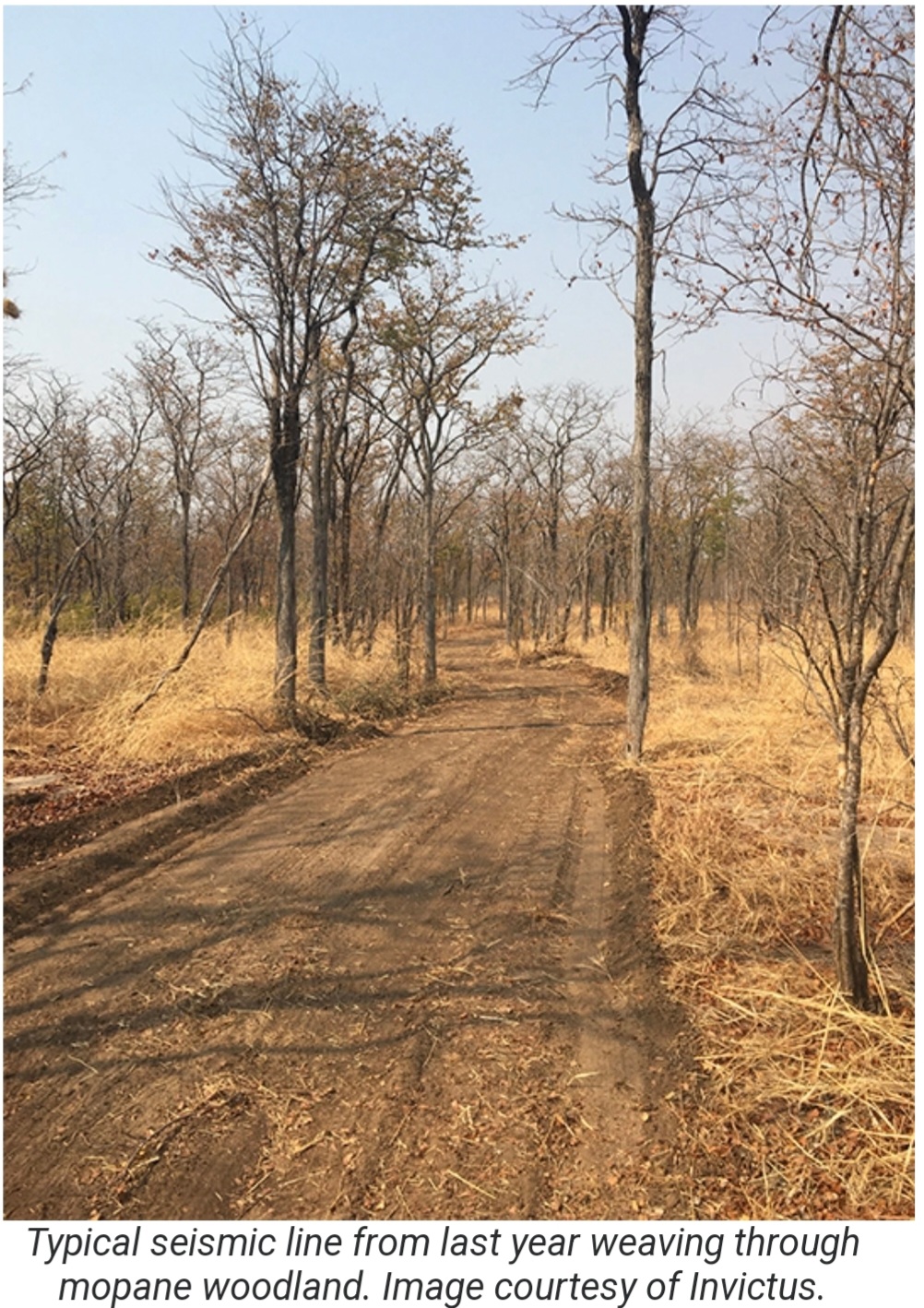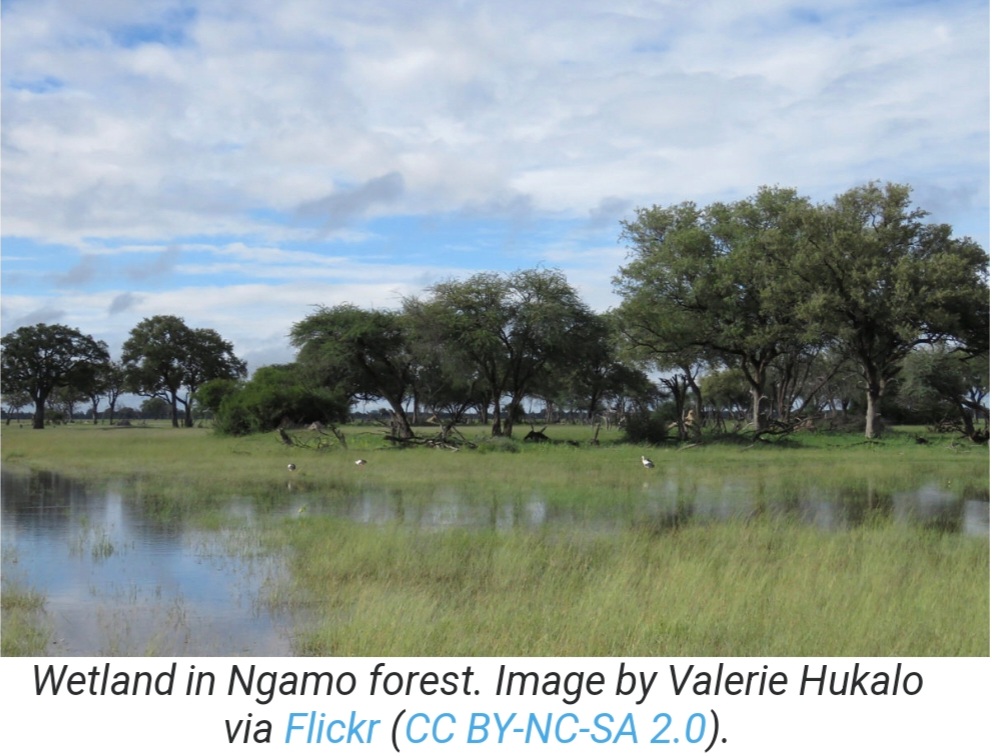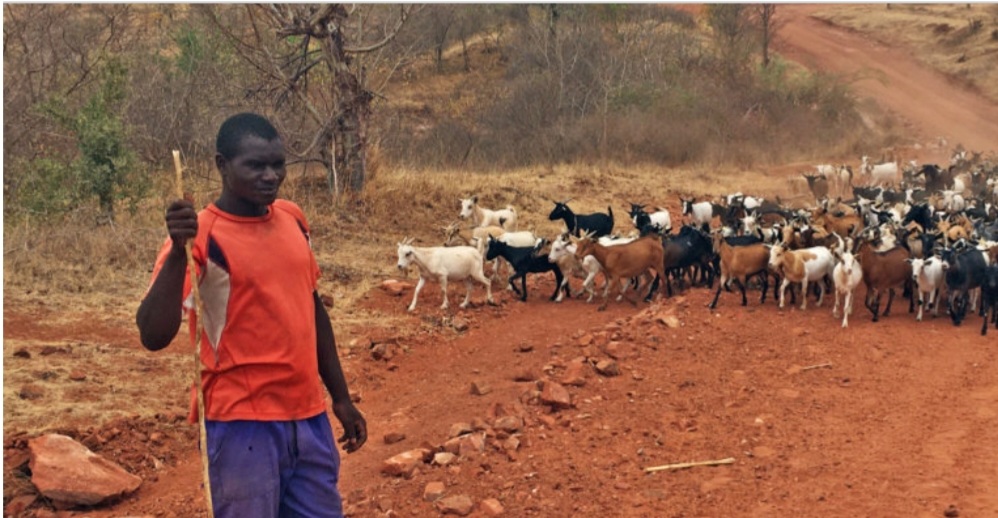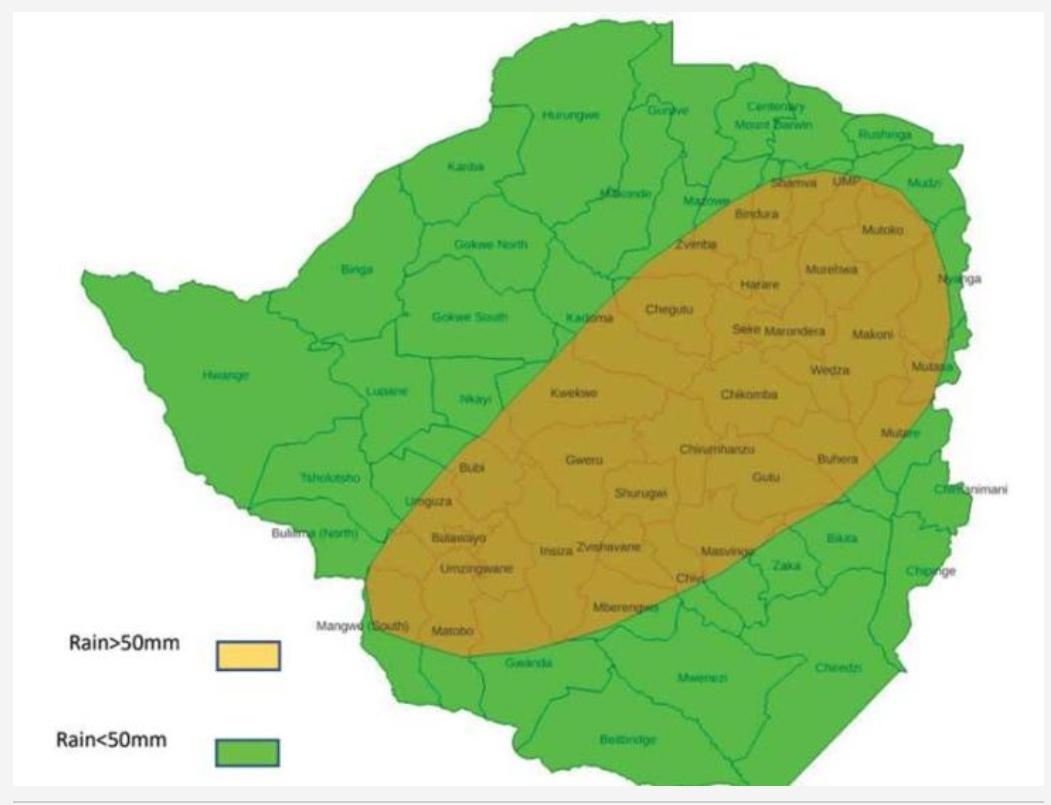BY RYAN TRUSCOT
Australian firm Invictus plans forest protection projects covering more than 300,000 hectares, or 741,000 acres, of indigenous forest in Matabeleland North, which the company says will more than offset emissions caused by its exploration and eventual extraction of oil and gas hundreds of kilometres away in the north of the country.
The Gwayi, Sikumi and Ngamo forests, where long-living hardwood trees like Zambezi teak (Baikiaea plurijuga), mukwa (Pterocarpus angolensis) and leadwood (Combretum imberbe) grow in the region’s deep Kalahari sands, are already designated state forest reserves.
Barry Meikle, Zimbabwe country manager for Invictus, says that while all three forests are protected on paper, they’re not as well protected as they should be.
“Gwayi is probably the most vulnerable. It’s become an ‘island forest,’ it’s not contiguous to the other two. It’s surrounded by people and is under a lot of pressure.
“That’s the one we’re going to be focusing on because it needs the most help,” he says.
“Inside the forest, there will be measures like fire prevention, fire guards and anti-poaching, and reforestation.
“But of course we have to work with communities outside to give them alternatives to using the forest for firewood and grazing and for poaching.”
Invictus was awarded the contract for the REDD+ project via an international tender published in February by the state-run Forestry Commission of Zimbabwe.
It will run the project jointly with the commission through a division known as Miombo Forest Carbon Investments.

The company says the two will share future profits from the sale of anticipated carbon credits and use some of those proceeds to support improved health care, education, roads and water supply for communities surrounding the forests, which are in Matabeleland North province.
The region suffers from severe economic hardship and underdevelopment.
Invictus says the three forests in Matabeleland North can potentially absorb 1 million metric tons of carbon per year over the 30-year life of the contract.
Meikle says Invictus won’t claim carbon credits based on what already exists in the area.
“A carbon credit project must be designed to protect what’s there and increase the forests and improve their ability to absorb carbon,” he says.
“The system works by rewarding us for investing in these projects to conserve and protect the forests, by allowing us to claim credits based on our positive impact.”
The REDD+ program is still being drafted, but Invictus will initially fund the projects itself until it can obtain verification and start to accrue carbon credits, Meikle says.
The company plans to get its REDD+ project certified by the Washington, D.C.-based Verified Carbon Standard, or Verra.
It says it hopes the project will help make its oil and gas drilling project in Muzarabani, a remote district in the Zambezi Valley around 750 kilometers (470 miles) to the northeast, “one of the first cradle to grave carbon neutral oil and gas projects in the world.”
Invictus says its oil and gas exploration will only produce 15 million metric tons of carbon during its entire life cycle.
Experts calculate that dry woodlands like Ngamo, Gwayi and Sikumi sequester only around a third of the carbon per unit area than moist tropical forests: 6 kilograms per square meter (1.2 pounds per square foot), compared to as much as 18 kg/m2 (3.7 lbs/ft2) in the Amazon or Congo Basin.
By comparison, REDD+ projects run by Carbonfund.org, which cover an identical area as Invictus’s — 300,000 hectares of lowland evergreen forest in Brazil — will reduce more than 16 million metric tons of carbon dioxide equivalent emissions over their first 10 years, according to that company’s estimates.
But regardless of the carbon-storing capacity of the forests, Invictus plans to work with in western Zimbabwe, Francis Vorhies, director of the African Wildlife Economy Institute at South Africa’s Stellenbosch University, says he struggles with the concept of paying landowners (including government agencies) not to further degrade or deforest an area.
He says it presents a “moral hazard,” whereby the authorities could one day turn around and say, “If you don’t pay us, we will deforest and degrade the reserve.”
Vorhies says his preference is for managers of Southern Africa’s dry forests to explore alternatives that include developing community-based systems for wild harvesting, such as foraging, fishing and hunting to provide wild foods, medicines, fuel and building materials.
“That’s the wildlife economy approach to restoring and conserving landscapes,” he says.
Trevor Lane, an ex-staffer of Zimbabwe’s Forestry Commission and co-founder of Victoria Falls-based conservation group the Bhejane Trust, backs this approach.
Like Vorhies, he questions what added value a REDD+ project can bring to the region.
“Ngamo and Sikumi are not under threat in any manner or form whatsoever from deforestation,” he says.
Both are well stocked with wildlife, and support photographic and hunting safari operators, he says.
And it’s in the interest of these operators to protect the area from wildfires and poachers.
On the other hand, he confirms that Gwayi forest has been overrun by poachers. “It used to have the best plains game you’ve ever seen,” Lane says.
“If they [Invictus and the Forestry Commission] fenced off part of Gwayi Forest, and restocked it, and made it into a wildlife area, that would be fantastic. That would be a multimillion-dollar project, which would be incredibly valuable.”
The Forestry Commission did not respond to questions about the offset project.
With Invictus’ REDD+ project still in the planning stage, the impact of the company’s imminent oil and gas extraction 750 km away will raise concerns over its potential to cause pollution and biodiversity loss there.
An environmental impact assessment has been completed; Invictus declined to share the entire document with Mongabay, but did provide excerpts.
These recommend, among other things, minimizing disturbance to natural vegetation in the area, which consists of mature “cathedral” mopane and acacia woodland; restoring areas that are cleared for the drilling rigs; curbing air and noise pollution; preventing conflict with wildlife; and reducing the impact of roads and campsites used by its workforce.

The EIA also calls for mining teams to strictly adhere to local traditions to prevent coming into conflict with Muzarabani’s human communities, and for strict measures to prevent ground pollution and oil spills.
Meikle says Invictus has “implemented or is following almost every measure mentioned.”
Under the initial phase, only two wells will be drilled, and minimal areas of land disturbed, he says.
Topsoil removed to accommodate the rig and other equipment at the initial Mukuyu-1 drilling site has been stockpiled. If gas isn’t found, the topsoil will be replaced and planted over.
Meikle says that last year, as the company cleared tracks through the bush to carry out seismic surveys, bulldozers went around trees whenever they could.
To avoid spills and waste, Invictus has chosen to use drilling muds that are water-based, rather than oil-based, and therefore less hazardous to the environment, he adds.
The drilling cuttings will be placed in sealed reservoirs that will then be dried out and covered.
“There’s nothing to leach, and it will remain sealed and covered up,” Meikle says. “The water-based mud we’ll be using can’t contaminate rivers or underground water.”
President Emmerson Mnangagwa’s government, through its Sovereign Wealth Fund, is a partner in the gas-drilling project, and is likely to get 50-60 percent of production, according to Invictus, though a production-sharing agreement is yet to be finalised.
Ahead of elections set for next year, the government will likely see the project as a fulfillment of its mantra to leave “no one and no place behind.”
A story in the state-controlled Sunday Mail newspaper in late August covering Invictus’s quest for gas appeared under the headline “Muzarabani on cusp of transformation.”
Invictus has told investors that it expects its mining concession to yield 4.3 billion barrels of oil equivalent.
Meikle says even if the company doesn’t find oil and gas in Muzarabani, it will still push ahead with the REDD+ project in Matabeleland North. – Mongabay


 Slider1 year ago
Slider1 year ago
 News1 year ago
News1 year ago
 Tourism and Environment2 years ago
Tourism and Environment2 years ago
 News3 years ago
News3 years ago
 News2 years ago
News2 years ago
 News2 years ago
News2 years ago
 News1 year ago
News1 year ago
 News2 years ago
News2 years ago




